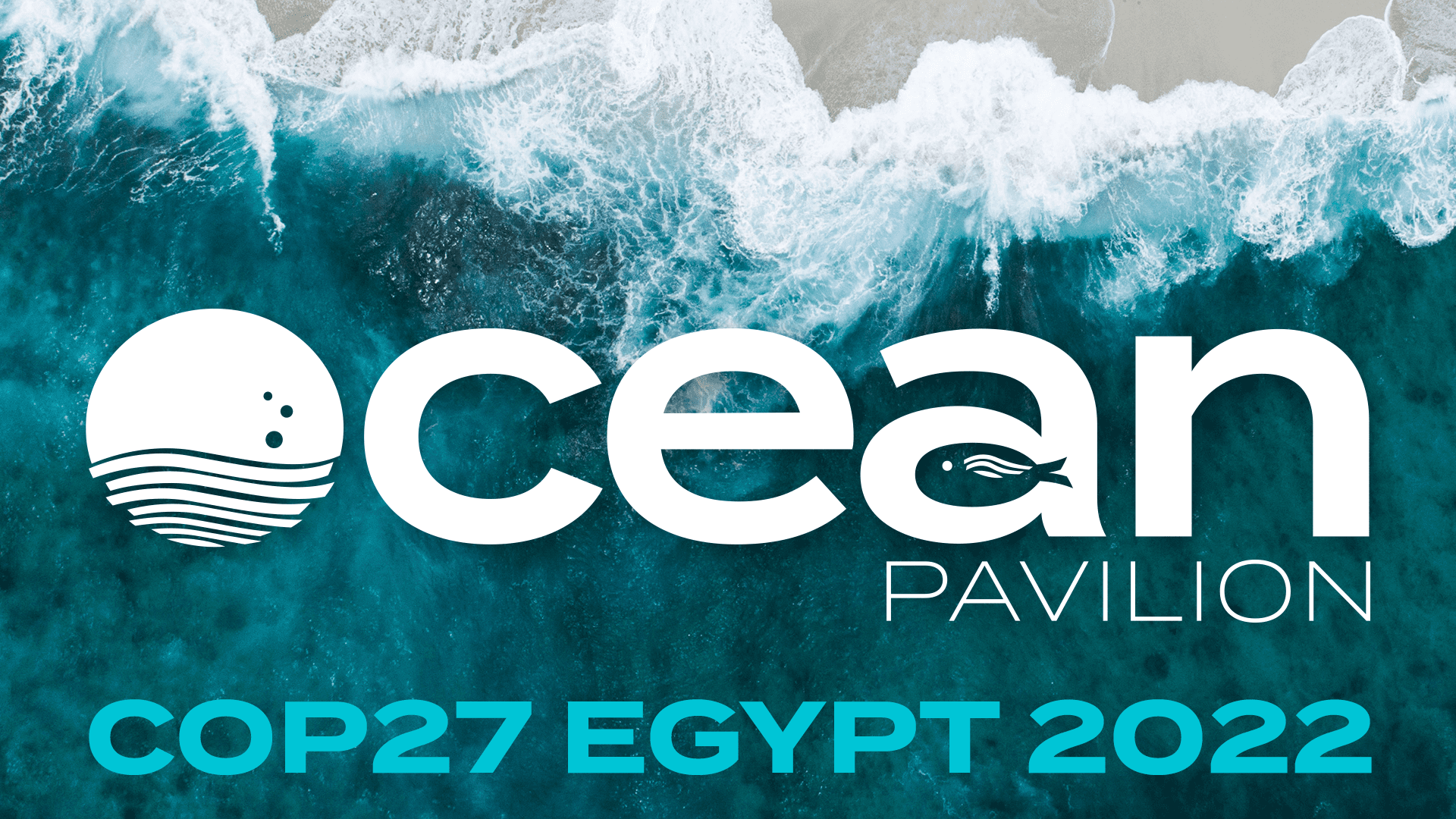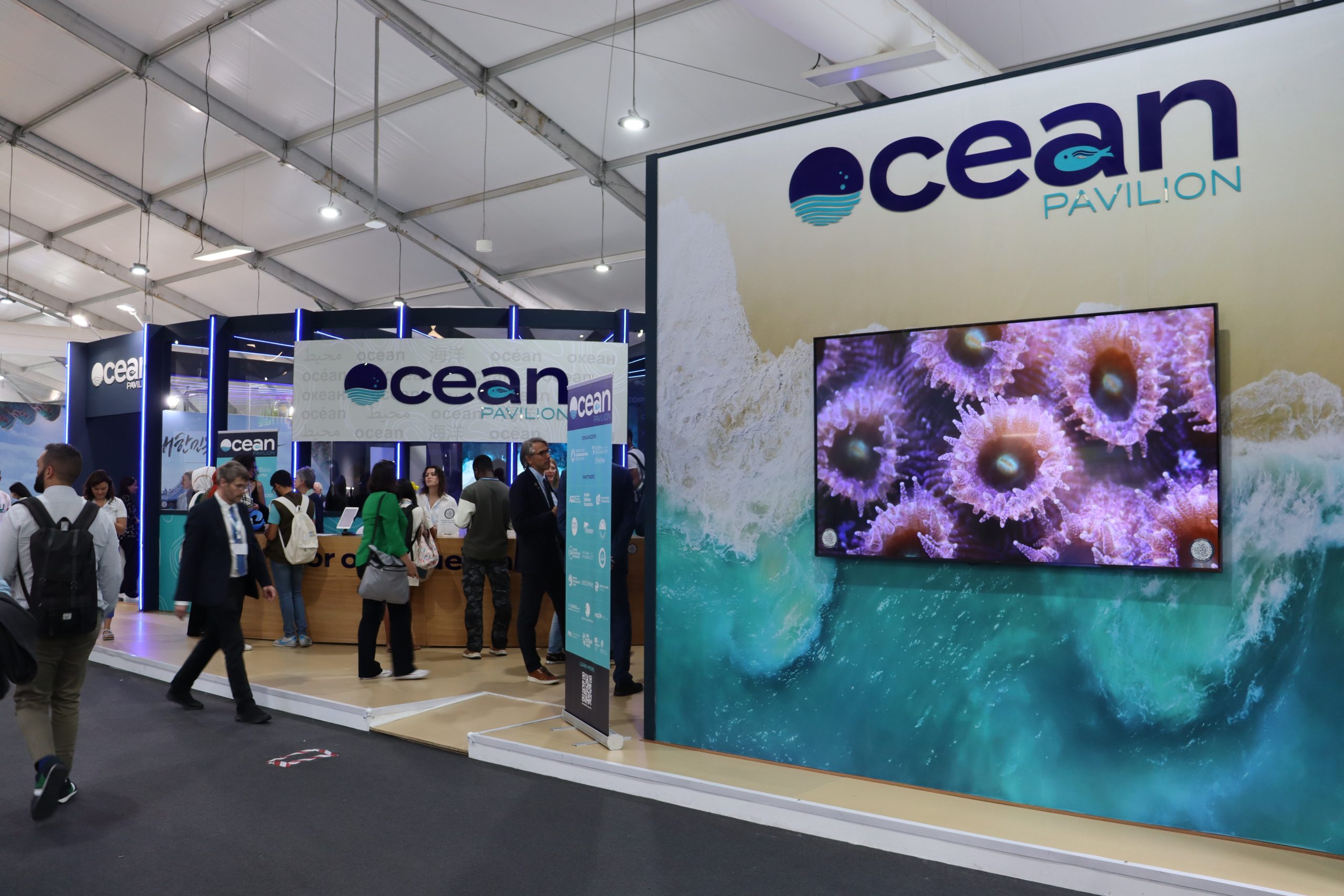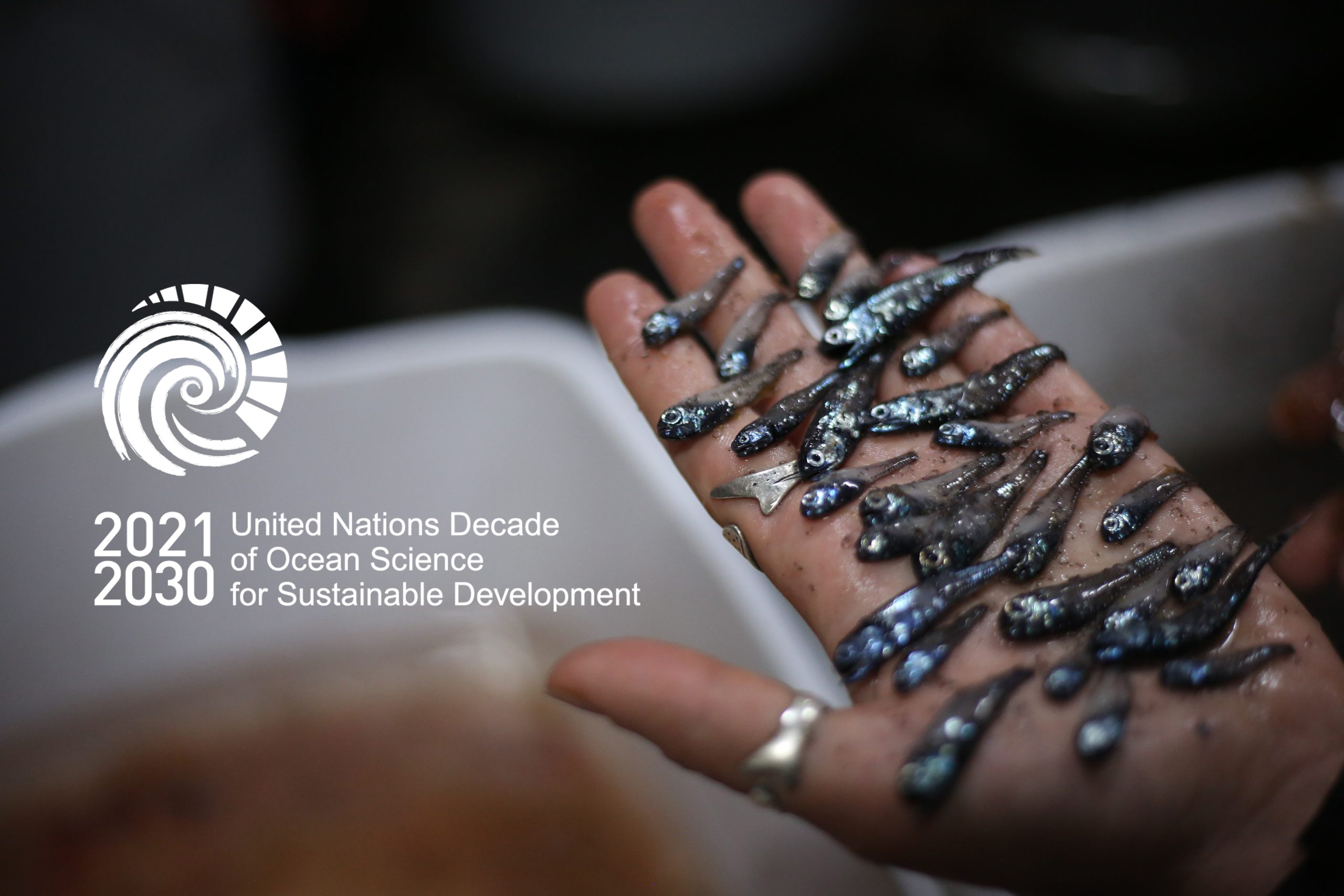OTZ at COP27 November 7, 2022

A group of the world’s leading ocean science and philanthropic organizations, led by the Woods Hole Oceanographic Institution (WHOI) and Scripps Institution of Oceanography at the University of California San Diego, have come together to highlight the global ocean at the upcoming 27th Conference of the Parties (COP27) in Sharm el-Sheikh, Egypt.
These organizations have partnered to create a new Ocean Pavilion in the conference’s official meeting area, providing a venue to highlight the work of WHOI's Ocean Twilight Zone Project—and drive home the crucial importance of the ocean to Earth’s climate and to efforts to mitigate the effects of climate change. This will be the first time the ocean has been the singular focus of a pavilion inside the central “Blue Zone” at any COP and the first time a pavilion has been organized principally by a group of research institutions.
“Earth is an ocean planet,” said WHOI President and Director Peter de Menocal. “The ocean gives us the oxygen we breathe, the water we drink and the food we eat. It also provides jobs for billions of people, including many of the world's most vulnerable. It’s only natural that the ocean should also be at the center of discussions about the sustainability of human activity on Earth, including how it can help stabilize the global climate system at a safe level."
“The ocean is the engine of Earth’s climate,” adds Margaret Leinen, Director of Scripps Oceanography, and Vice Chancellor for Marine Sciences at UC San Diego. “We know that it has absorbed 90% of the heat produced by human activity since the dawn of the industrial age and it holds 20 times more carbon than the atmosphere and terrestrial plants combined. Put simply, the ocean is climate, and the climate is the ocean."
In addition to Woods Hole Oceanographic Institution and Scripps Institution of Oceanography, Ocean Pavilion partners include American Geophysical Union (AGU), Avatar Alliance Foundation, Blue Marine Foundation, French National Centre for Scientific Research (CNRS), French National Research Institute for Ocean Science and Technology (IFREMER), Minderoo Foundation, Monaco Scientific Center, National Institute of Oceanography and Fisheries-Egypt (NIOF), National Oceanography Centre (NOC), Ocean Policy Research Institute (OPRI), OceanX, Pacific Islands Forum, Partnership for Observation of the Global Ocean (POGO), Plymouth Marine Laboratory (PML), The Ocean Race, and UNESCO’s Intergovernmental Oceanographic Commission, the coordinating agency of the UN Ocean Decade.
The Ocean Pavilion will also be open to other groups attending COP27 to propose events during the conference that will broaden the conversation about what the ocean can do for the planet and what humans can do to protect the ocean.
For more information about the Ocean Pavilion, including ways to propose events and programming during COP27, visit the pavilion website.








